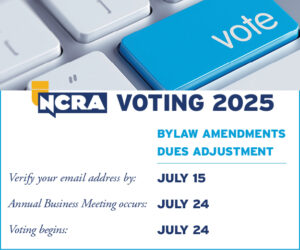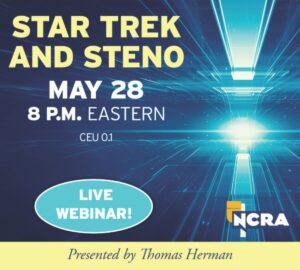
By David Herrera and Jason Meadors
This article was developed by looking at the Colorado rules and regulations. Others in different localities may use this as a blueprint to figure out best practices for their state or other situation.
In this moment of social distancing and outright isolation, conducting meetings and depositions by remote means may be challenging, even foreign, to any number of practitioners. Here are a few guidelines and helpful hints for practicing under conditions that are suddenly the new normal.
The platform, i.e., the means to do so
For meetings, it will be helpful to have your own hosting capability. Any number of platforms are out there: Zoom, WebEx, GoToMeeting, among others. There are free versions, but free likely comes with restrictions (e.g., limited time, advertising, or decreased bandwidth). It behooves a law office to have a dedicated and dependable videoconferencing account.
As of this writing, and despite some disaffecting headlines, Zoom is the popular platform. With all platforms, use passwords to ensure security. The most basic premium services are inexpensive, at about $15/month, and usability and reliability are quite high. For ease of reference, any videoconference details mentioned in this article will refer to Zoom protocols.
For depositions, recommended practice is to engage the court reporting service as host. This provides a neutral third party for arranging access, impartiality in hosting protocols, and controlling on/off times.
Setup
The videoconference host, whether it is you, another party, or the court reporter, will need email addresses of all attendees to send out invites to participate. If you want your remote client to be able to attend, they will need an invitation to be able to join in.
A good backdrop is nice, but lighting is more important. Test your microphone and speakers during the setup phase.
An invitation will consist of a URL to click on or a phone number, meeting number, and perhaps a password in order to join.
The host should begin the meeting prior to the appointed time. The attendees can join once the host has begun the meeting. For security, it is recommended to keep the attendees in the “waiting room” and have the host admit them to the meeting.
If you are not familiar with the videoconference platform, take five minutes to take a virtual tour.
Conducting proceedings appropriately
Just like in a “normal” conversation, participants like to interact face-to-face. Please enable your video feed. A party may phone in absent the availability of a video feed, but this is unusual. Cameras have been embedded on cellphones for years now. Please use the video function. It doesn’t cost extra.
Talking one at a time, that de rigueur instruction for depositions, becomes ever more important in this context. When more than one person speaks at the same time, one can be heard and the other(s) will be occluded. You will not know if your important words are actually being heard by anyone. Speak one a time; and if you find yourself talking at the same time as another, play it safe and repeat your statement when you have a chance to be heard solo. Pro tip: To avoid embarrassment, mute your microphone whenever appropriate. And … wear pants.
In meetings, the host can either serve as the moderator or the group may appoint a moderator to ensure full participation and, if necessary, control or regain control of the meeting. In larger group meetings, it helps to identify yourself before speaking. Remember, courtesy matters.
In depositions, due to the vagaries of remote access, if the court reporter asks for a repeat, be patient. This will occur more often in an environment where speech clarity is much more tenuous. In the instructions phase of the deposition, it may be appropriate to ask for the deponent to pause a beat between the question and the answer to allow remote counsel to state an objection before the answer is given.
Documents may be shared in advance. For a deposition, send a .pdf to the court reporter at least 24 hours before the deposition with your exhibits pre-marked. You may share documents with opposing counsel during the deposition but trying to do so “on the fly” is awkward and likely a doomed effort. Pro tip: Send your .pdf exhibits pre-marked to opposing counsel after you give them a courtesy notification that you will send the exhibits in advance. Use your own best professional judgment about how soon in advance you wish to share your deposition exhibits.
For documents revealed during a deposition, go off the record and consult with the court reporter. There are tools available to mark and share documents electronically.
The legalities of remote depositions
As to whether remote depositions, where no participant is physically present with another, are allowable, Colorado Rules of Civil Procedure Rule 29 provides, in part, upon written stipulation: “… depositions may be taken before any person, at any time or place, upon any notice, and in any manner and when so taken may be used like other depositions.” Ed. Note: Check with your state to see the exact rules in your state for remote depositions.
In the absence of a written stipulation, recommended practice is to have attorneys stipulate on the record at the opening of the deposition as to the acceptability of conducting the deposition and administering the oath remotely.
As to the legal authority for the officer (court reporter) to administer an oath remotely, Governor Polis issued Executive Order D 2020-019 on March 27, 2020, temporarily suspending the requirement of personal appearance for notarial acts. You may wish to check for similar rules in other jurisdictions if the case is not filed in Colorado.
Reminder: A deposition by videoconference is not the same as a video deposition that requires a certified court videographer. You may not use the Zoom recording as evidence or for impeachment purposes. Ask your court reporter for details.
Overview
At the time of this writing, the above outlines the preferred means for meetings of two or more in the interests of social distancing and allowing the gears of the legal system to mesh as smoothly as possible under these circumstances. Remote conferencing is literally the new normal. Attorneys can serve your clients best by being the reliable resource for conducting meetings or, in the case of a deposition, providing the court reporter with the information necessary for a successful proceeding.
We wish you success and good health as we navigate the current and unprecedented environment.
David Herrera, Esq., is a partner with Herms & Herrera, LLC, a law firm in Fort Collins, Colo. Jason Meadors, FAPR, RPR, CRR, CRC, is a freelance court reporter and CART provider also based in Fort Collins, Colo., as well as a member of the NCRA Board of Directors. Meadors can be reached at jason@meadorsreporting.com.






